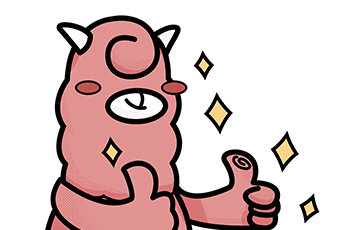2024年11月雅思阅读考试题预测及答案:sleep
2024年11月雅思考试共有纸笔考试4场、机考考试30场,羊驼雅思教研组为烤鸭们整理了11月雅思考试阅读考题预测Passage 1 sleep及参考答案如下,供大家复习备考参考。

更多雅思考试机经及预测题,查看2024年雅思机经:听力、阅读、写作真题及答案汇总
READING PASSAGE 1
You should spend about 20 minutes on Questions 1-13 which are based on Reading Passage 1 below.
SLEEP
Historically, it was difficult to study sleep. Not much can be gleaned from observing recumbent persons and questionnaires are no use, because people remember little of their experience during sleep. The breakthrough came in the 1950’s with electroencephalogram (EEG) recordings of brain electrical activity, when it was confirmed that sleep is anything but dormant.
We need sleep for biological restoration. It promotes cell growth, regeneration and memory consolidation. By shutting down most of the body’s machinery, resources can be focused on repairing damage and development. When people are deprived of sleep for any reason, there is deterioration in performance, particularly on tasks requiring concentration, and eventually, behaviour becomes shambolic. The individual becomes progressively incoherent and irritable and, after a few days, may experience delusions and hallucinations. The disruptive effects of sleep deprivation have even been successfully used as a basis of persuasion in interrogation.
A vital part of sleep is dreaming, which happens most intensively during rapid eye movement (REM) sleep. We typically spend more than two hours each night dreaming, though this is often spread over four or five separate periods. Infants spend up to 50 per cent of their sleep time in REM sleep, which is understandable when one realises that REM sleep is the time used for brain development, as well as learning, thinking, and organising information. If people are woken when REM sleep commences, depriving them specifically of dream-sleep, the proportion of REM sleep increases once they fall asleep again to make up what was lost. This suggests that REM sleep is an essential aspect of sleep.
Sleep and sleep-related problems play a role in a large number of human disorders and affect almost every field of medicine. For example, problems like a stroke tend to occur more frequently during the night and early morning, due to changes in hormones, heart rate, and other characteristics associated with sleep. Sleep also affects some kinds of epilepsy in complex ways. REM sleep seems to help prevent seizures that begin in one part of the brain from spreading to other brain regions, while deep sleep may promote the spread of these seizures. Sleep deprivation can also trigger seizures in people with some types of epilepsy.
The neurons that control sleep interact strongly with the immune system. As anyone who has had the flu knows, infectious diseases tend to make people feel sleepy. This probably happens because cytokines, chemicals produced while fighting an infection, are powerful sleep-inducing substances. Sleep helps the body conserve energy that the body’s immune system needs to mount an attack.
Sleeping problems occur in almost all people with mental disorders, including those with depression and schizophrenia. People with depression, for example, often awaken in the early hours of the morning and find themselves unable to get back to sleep. The amount of sleep a person gets also strongly influences the symptoms of mental disorders. Sleep deprivation is an effective therapy for people with certain types of depression, while it can actually cause depression in other people. Extreme sleep deprivation can lead to a seemingly psychotic state of paranoia and hallucinations in otherwise healthy people, and disrupted sleep can trigger episodes of mania in people with manic depression.
Sleeping problems are common in many other disorders as well, including Alzheimer’s disease, stroke, cancer, and head injury. These sleeping problems may arise from changes in the brain regions and neurotransmitters that control sleep, or from the drugs used to control symptoms of other disorders. In patients who are hospitalised or who receive round-the-clock care, treatment schedules or hospital routines also may disrupt sleep. The old joke about a patient being awakened by a nurse so he could take a sleeping pill contains a grain of truth. Once sleeping problems develop, they can add to a person’s impairment and cause confusion, frustration, or depression. Patients who are unable to sleep also notice pain more and may increase their requests for pain medication. Better management of sleeping problems in people who have a variety of disorders could improve the health of these patients and their quality of life.
Insomnia is a widespread affliction. It is linked with conditions such as depression and chronic pain, but occurs also in otherwise healthy people. It is often due to temporary life circumstances, like trouble at work or anticipation of an exciting event, however, some people just have difficulty sleeping regardless of circumstances. What is interesting is that complaints of sleeplessness are often exaggerated, because people remember more easily the times they are awake during the night than the times they are asleep. When insomniacs are observed in a sleep lab, their EEG records often suggest that their sleep pattern is fairly normal, even though in the morning they maintain they hardly slept a wink. Various devices for monitoring one’s own sleep patterns are now marketed, for example mobile phone apps connected with forehead electrodes.
The fact that a third of our life is spent in sleep would, in itself, be sufficient justification for studying it scientifically. The discovery that it is not just a passive state, but a highly active process of profound biological and psychological importance, has led to great efforts in recent decades to further our understanding of it. Despite that, we are far from unravelling all of sleep’s mysteries.
Questions 1-7
Complete the notes below.
Write NO MORE THAN TWO WORDS for each answer.
Write your answers in boxes 1-7 on your answer sheet.
Sleep
·Sleep study only advanced after the electroencephalogram started to be used.
·Sleep is used to restore the body and cells, and strengthen the (1)..........
·With little sleep, people operate worse, especially when (2).......... is needed.
·The effects of sleep deprivation can be severe and have been used in interrogations.
·REM sleep is when dreaming occurs; important especially for (3)..........., who need a lot of REM sleep for their brains.
·If REM sleep is lost, the body increases the (4)..........of REM sleep in the next sleep to make it up.
·Strokes are more common during or after sleep, and (5)........... and other seizures can both be caused and prevented by sleep.
·Sleep is closely associated with the (6).........., as cytokines produced while the body fights infectious disease induce sleepiness; sleeping when sick helps people save the (7)............. to fight infections.
Questions 8-13
Do the following statements agree with the information given in the text?
In boxes 8-13 on your answer sheet write:
TRUE if the statement agrees with the information
FALSE if the statement contradicts the information
NOT GIVEN if there is no information on this
8 A lack of sleep can both help and hinder people suffering from depression.
9 Better sleep routines can help people who suffer from Parkinson’s disease.
10 People who are sleep-deprived actually have a better tolerance to pain.
11 In spite of media reports, insomnia is not a common problem.
12 Insomniacs often sleep more than they realise.
13 Overuse of mobile phone apps can cause insomnia in some people.
参考答案
1.memory 2.concentration 3.infants 4.proportion
5.epilepsy 6.immune system 7.energy
8.TRUE 9.NOT GIVEN 10.FALSE 11.FALSE 12.TRUE 13.NOT GIVEN



